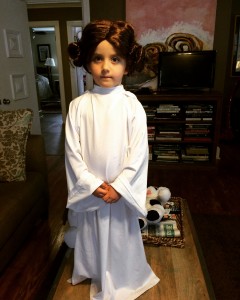My hope is that students feel that Writing 101 was a foundation for the kind of research-intense work we’ve done in Writing 102. From my own observations, students were more engaged in working with the NYT last semester than my first year Writing 101 students were in the Norton textbook. It led easily to 102 in that students were already aware of the topics that built the most kairos in a sense. I felt that many of the topics covered in especially the opinion part of the NYT led well into the cultural myths explored in 102. It prepared students for the kind of engagement in social issues that came with the Writing 102 theme. Student writing improved in some ways, but I feel like the most growth happened in students who were already driven in Writing 101 and really pushed themselves to be better researchers and stronger academics in 102. I’m hoping the semester has given students a confidence in their writing that they may not have had without the first year writing sequence.
Author Archives: asnichol
Final Reflection 1 – High School Vs. College
As an instructor in both settings, one of the main differences I see in the writing expectations of high school vs. college is inquiry. As an AP teacher, I used to have students write to specific prompts. I even trained them in how to write an effective essay quickly. I remember students’ frustration when they received a prompt they didn’t like; it really impressed on me the importance of letting students choose their own writing topics. Not only do students enjoy inquiry-based writing more, I enjoy grading it more!
This…
This pic, though… FIVE WEEKS UNTIL SUMMER BREAK!
My Writing Rules
As a student, I was taught to write the five-paragraph essay in my earliest years of academic writing (I’d say it started around middle school and lasted until my junior year of high school). We would have to offer up three points for our thesis statement, and then we would make sure the three body paragraphs aligned with our three points. We’d write a weak conclusion that was basically a word-for-word retelling of our intro. I remember that it was the start of hating academic writing and loving creative writing for me.
Thankfully, a woman named Joyce Helmick and a man named George Wilson together broke this mold for me. In my AP History class, Mr. Wilson taught us to be open to creativity in academic writing. To always consider audience and purpose of every assignment. Mrs. Helmick taught me to be flexible to the genre of each assignment. She felt it was a skill one needed to master to understand the difference between a persuasive essay, a poem, a researched thesis, a short story, etc. No genre was above another one; it’s up to us to be able to have the talent to approach each assignment for what it is…not what the last paper was.
As a writing teacher, my writing rules consist of the following (and I’m sure there are many more):
- Appreciate the parameters of each assignment. You will not always like every type of paper, but having the stamina and skill to approach every writing project is good training for life.
- Always consider audience before approaching an assignment. That’s how you’ll find your writing voice. Don’t expect it to be the same for every assignment.
- Teachers have to post word count minimums. Believe me, we wish we didn’t have to. But, if we don’t, some students mistake that for not needing to explore the assignment fully. But, even if you see a word count, try to ignore it. Just write. Most of the time, if you are truly fulfilling the assignment, word count will not be an issue.
- Always engage your reader.
- Don’t forget the rhetorical triangle. We don’t discuss it just to analyze stuff in Writing 101. We discuss it because it is the cornerstone to good writing across the board. How do you build your own credibility in your work? How are you supporting your claims with strong logical evidence? How are you engaging your reader’s passion and emotion for your topic?
- How will you BEST serve your topic? In an academic argument, your topic is BEST served by remaining objective. Remember, it’s about the parameters of the assignment, the genre. You want to consider that when making writing decisions.
- Inquiry is key. If you don’t care about your topic, it will be very apparent in your writing. Caring counts.
Leia says, “Seven More Weeks Until Semester’s End…the Force be With You.”
Running out of source ideas? Try…
- Ted Talks
- New York Times Op-Docs
- Local issues? Check out Mississippi Public Broadcasting
- Retro Reports
- National Public Radio podcasts (Fresh Air, Here & Now, The Marketplace)
- Podcasts like Serial or This American Life
- Have a Netflix account? Browse the documentaries!
- Local newspapers!
- Consider conducting primary research like surveys, interviews, etc.
- Don’t forget about the resources in the textbook. Even the visual portfolios!
- PBS! Lots of great stuff on PBS, especially Frontline.
- Don’t forget about Statistical Abstract of America, CQ Researcher, or Issues & Controversies.


